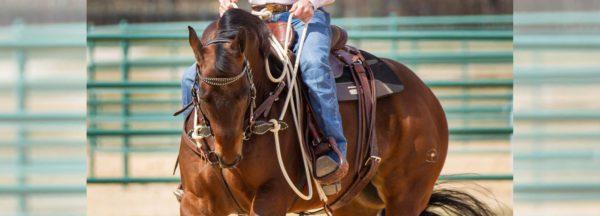Training Tip: How to Stop a Horse From Putting His Tongue Over the Bit

Question: I have a 3-year-old Quarter Horse gelding that I bought just over six months ago. He was already “broke” when I got him, but I immediately started him on the Fundamentals. He had (and still has) a very bad habit of getting his tongue over the bit, and I don’t know how to break the habit. He’s now starting to get stiff in the jaw, and I think it has to do with him being uncomfortable. Any suggestions? – DHRanch
Clinton’s Answer: If you think your horse is uncomfortable, have him looked at by an equine dentist and a veterinarian. As a general rule of thumb, you should have your horse’s teeth floated once a year, sometimes more depending on the horse’s age, and your veterinarian can rule out any other health issues.
Also, double-check that your bridle is fitted correctly for your horse so that the bit is in the proper position in his mouth. If the bit is hanging too low in his mouth, he’ll have more of a tendency to stick his tongue over it and feel uncomfortable because the bit will bang against his teeth. A properly fitted bit should just rest against the corners of the horse’s mouth. The old rule of thumb used to be to put three wrinkles in the side of the horse’s mouth, but I don’t agree with that because if there are wrinkles, it means there is pressure on the horse’s mouth all of the time. You want the bit to be placed so that when you pick up on the reins, there is pressure applied to the horse’s mouth, but when you release the reins, the bit pressure releases as well.
With all that being said, horses get into the habit of putting their tongues over the bit, and to be perfectly honest, I just ignore it. I go about the training session as I normally would. If a horse can get his tongue over the bit, he can get it back under the bit. If he wants to play with it, let him. In time, he’ll stop playing with it and hold the bit quietly in his mouth. However, if every time he puts his tongue over the bit you immediately take the bridle off him, fuss over him and he gets out of work, he’ll continue to do it.
Have a horsemanship question or looking for more training tips? Check out the No Worries Club.
